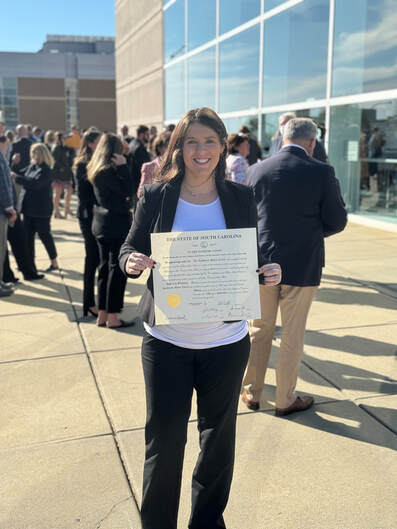|
By Attorney Kelly Jesson
The Supreme Court has issued many newsworthy rulings recently, but one you might not be familiar with is the Connelly Case. In Connelly v. United States, the Supreme Court held that the value of life insurance proceeds paid out to a business after the death of one of its owners must be included in the date of death valuation of the business. For the past twenty years, life insurance paid to a business as the result of an owner’s death has not been included in the business valuation if the business had an obligation to purchase the deceased owner’s interest in the business back. The reasoning was that this was a liability that the business owed. If a business was paid $3 million dollars in life insurance but it was obligated to pay the deceased owner’s family $3 million dollars, then it’s a wash. The implications of this ruling are significant. A business that is the beneficiary of life insurance proceeds may be valued much higher than it “really” is. For example, let’s say there are two owners of Widget Corp. The business is worth $5 million, so the owners each had $2.5 million dollars in insurance taken out by the corporation. At the death of one of the owners, the corporation was to redeem the deceased owner’s shares, which were worth $2.5 million prior to death. After the Supreme Court ruling, the business is actually worth $7.5 million ($5 million + life insurance). If the agreement was to pay half the value, the corporation would owe the family $3.75 million but only have $2.5 million in cash to do so. For people who may have to pay estate taxes (oftentimes business owners!), the difference in a few million dollar valuation can result in huge tax payments. And to add insult to injury, the family could end up paying taxes on assets they didn’t really get. In the above example, the true value of the business interests was $2.5 million but they would have to pay tax on the $3.75 million valuation if it was a taxable estate. The ruling requires business owners to carefully review their buy-sell and operating agreements to see how valuations will be determined. Is it the date of death value, or the value put on the business at the beginning of the year, or the value of the life insurance? While you can’t exclude life insurance for IRS purposes, you may be able to for buy-out valuation purposes. One way around this ruling is to use cross-purchase agreements. Instead of the business owning the life insurance policy, the individual owners will own life insurance policies on each other. When one owner dies, the life insurance is paid out to the other owners, not the business. Also, more people may utilize LLCs to own life insurance policies. The problem with cross-purchase agreements is that if you have a lot of owners, you have a lot of policies. If there are three owners, for example, there are six policies. If you set up an LLC to own the insurance policies (and then the LLC uses the money to buy the deceased owner’s interest), there are fewer policies. In this example, there would be three instead of six. If you would like additional information, or if you need a review of your business’s insurance and operating agreements, please don’t hesitate to contact the attorneys at Jesson & Rains.
0 Comments
By Associate Attorney Katy Currie
Valentine’s Day is a holiday to celebrate the endless love we have for the loves of our life. What better present to give your Valentine this year than ensuring your estate planning is done? There are many important aspects of sitting down and planning for your future through your estate planning documents, and unfortunately, there are countless issues that could arise without proper estate planning. Without a will you lose the control you have over who inherits what when you pass away, and this could have huge implications on your loved ones. You are deemed to have died “intestate” if you die without a will. North Carolina has an Intestate Succession Act which is the default law that kicks in if you should pass away without a will. It names which of your surviving family members are considered your legal heirs in North Carolina. The most common misconception surrounding intestate succession is that your spouse will inherit everything if you pass away without a will. This is not always the case if you have probate property and are survived by children or parents in addition to a spouse. For example, if you do not have a will and are survived by a spouse and one child (or grandchildren if that child is deceased), or a spouse and a living parent if you have no children or grandchildren, in addition to receiving the $60,000 spousal allowance, your surviving spouse takes the first $60,000 of your personal property, ½ of your real property, and ½ of whatever remains of your personal property while the child/grandchildren/parent inherits the remainder. If you are survived by multiple children or grandchildren, that number is cut to 1/3. Additionally, in North Carolina, a will is the only way to name a guardian for your minor children in the event both parents pass away. You can also create a testamentary trust within your will, which will name a trustee who can be the money manager for inheriting children until they reach a certain age (later than the default age of 18). So, while enjoying a nice romantic dinner to celebrate and show your love for your Valentine, it is also an opportunity to discuss planning for your future while you have some alone, intimate time together. If you approach the conversation with care and thoughtfulness, it could help you break the ice for those difficult, but important, decisions for your estate plan which will have a positive impact on your Valentine for years to come. If you would like to take the next step and work on your estate plan, give Jesson & Rains a call! By Associate Attorney Katy Currie
As the holiday season rolls around, our focus often shifts to spreading joy, giving gifts, and cherishing time with loved ones. However, amidst the festive cheer, there might be family dynamics that don't always align with the holiday spirit. If you find certain family members perpetually landing on the metaphorical “naughty list,” it might be time to consider updating your estate plan to ensure your wishes are safeguarded regardless of family conflicts or disputes. If certain family members have a history of conflicts or strained relationships, it's crucial to communicate your intentions clearly in your estate plan. Explicitly outlining your decisions regarding asset distribution, guardianship, or decision-making authority in your estate plan can help avoid ambiguity and potential disputes. In some cases, you may want to explore options to protect your assets or ensure they are utilized according to your wishes, especially if you are concerned about how certain family members might handle their inheritance. Without a will or living trust, your assets would pass according to the intestacy laws of North Carolina. This takes away the control you have over who inherits when you pass away and could have huge implications on your loved ones. Additionally, in North Carolina, a will is the only way to name a guardian for your minor children in the event that both parents pass away. Furthermore, some people may require more complex estate planning depending on their family situation (such as second marriages, a child with special needs, or care of minor children) and the type and amount of their assets. Estate planning through devices such as living trusts allows you to put plans in place to address the specific needs of your beneficiaries, avoid the probate process, and address more complex tax issues depending on your assets. Finally, a comprehensive estate plan not only plans for what happens after death, but also addresses who would be responsible for making decisions on your behalf if you became incapacitated during your lifetime. This includes naming someone to make financial decisions on your behalf and someone to make medical decisions on your behalf. Without such a plan, your family may have to go through more drastic and expensive court proceedings to have you deemed legally incompetent by a judge. While it's essential to address concerns about family dynamics in your estate planning, doing so should be approached with careful consideration and guidance from professionals. The goal is not only to protect your assets but also to ensure your intentions are upheld and respected, even in challenging family situations. As you prepare for the holiday season, take a moment to consider the importance of estate planning in securing the future for yourself and your loved ones, even when navigating the complexities of family dynamics. If you approach the topic with honesty, care, and thoughtfulness, it could help you get the ball rolling on making important decisions for your estate plan that will have a positive impact on your family for years to come. Jesson & Rains, PLLC wishes you a joyous holiday season filled with love, laughter, and thoughtful planning for the future! By Shayla Martin
We are thrilled to announce the new licensure of attorney Katheryn “Katy” Currie in the state of South Carolina. Katy initially joined our team in November of 2022 with licenses in North Carolina as well as Alabama. Katy has been a dedicated and passionate advocate for her clients for several years, and her expansion into South Carolina is a testament to her commitment to providing exceptional legal services. Her experience and expertise in various areas of the law, including probate administration, estate planning, and business transactions, will undoubtedly benefit individuals and businesses throughout South Carolina. Along with Katy, our experienced legal team is ready to assist with probate matters, guiding you through the complexities of estate administration and ensuring the smooth transfer of assets to beneficiaries after the death of a loved one. Our estate planning services include wills, trusts, powers of attorneys, and advanced directives, ensuring that your assets are protected and your wishes are honored. Finally, for businesses in South Carolina, we offer a wide range of legal services, including contract drafting, business formation, and more. We're here to help you navigate the complexities of the business world while protecting your interests. Coming Soon: South Carolina construction and litigation services. We’re also happy to announce that partner Edward Jesson passed the South Carolina bar this fall and is expected to be licensed in SC early next year. By Associate Attorney Katy Currie
National Estate Planning Awareness Week was adopted in 2008 to help the public understand what estate planning is and why it is important for all people, not just the uber-rich. An “estate” does not necessarily mean something like the Biltmore Estate. Everyone has an estate, even small or insolvent estates. Estate planning is more than money – estate planning allows you to gain control and peace of mind over difficult and unpredictable situations. We have previously written about the difficulties caused by dying without a will in North Carolina and the pitfalls of the probate process in North Carolina; however, many of the “worst-case” scenarios can be avoided with proper planning. Let us help you plan for emergency scenarios and protect your business and personal assets for the benefit of your loved ones through estate planning. Unfortunately, COVID-19 has shown us that there are no guarantees, but it has also highlighted what is most important to each of us: family. Estate planning allows you to plan for what happens when you pass away, including naming a trusted person to handle your final affairs, name guardians for minor children, and distribute your assets according to your wishes. In addition to planning for death, our office drafts durable and health care powers of attorneys, where you can name agents to make both financial and medical decisions for you if you are incapacitated and cannot communicate. There is no reason to wait to do planning, and as we age and the pandemic continues to be a part of our “new normal,” you should get a plan in place before it is ever needed. If you do become incapacitated or ill, it may be more difficult or impossible to get documents in place, as you must have testamentary capacity to create valid estate planning documents. Some of our clients delay estate planning because they do not have any friends or family members they trust to serve in fiduciary roles. In some circumstances, members of the firm may serve in these roles for the client if the client feels comfortable. It is better for you to take control and name someone yourself than to have the government appoint someone in an emergency or when you pass away. National Estate Planning Awareness Week is a great time for you to take CONTROL! Please call Jesson & Rains if you have questions about getting your estate plan in order or updating an existing estate plan. While You Build, We Protect. By Associate Attorney Katy Currie
Estate planning can be a daunting process. Whether it is stress of making decisions that will impact loved ones when we are gone or avoiding thinking about death or incapacity, many people are hesitant to create an estate plan. The confusion and anxiety surrounding this process has led to these four common estate planning myths: 1. My estate is not big enough to require any estate planning. There is a widespread myth that only the very wealthy need estate plans and that the average person does not have an “estate” to begin with. This is not true! When someone passes away, all of their assets become part of their estate; there is no minimum threshold of assets that make up an estate. Thus, at death, we all have an estate, it just varies in size and complexity based on the amount and types of assets you have. Oftentimes, people with fewer assets have the most issues during probate and could have really used the help of an attorney. 2. Estate Planning only deals with distributing property at my death. Another myth is that your estate plan only deals with who will inherit your property when you pass away. This is also incorrect! A will allows you to name people who may serve important roles when you pass away. For example, a will allows you to name an executor to manage your assets and distribute them to the beneficiaries stated in your will at the time of your death. Without a will, you will not have any control over naming the person to manage your affairs at your death. Additionally, in North Carolina, the only way to name a guardian for minor children (if both parents pass away while the children are still minors) is in a Last Will and Testament. You can also name a trustee who is the “money manager” for inheriting children until they reach a certain age. Moreover, estate planning involves planning for incapacity through both durable and health care powers of attorney. With a durable power of attorney, you can name an agent to make business, legal, and financial decisions on your behalf if you become incapacitated. A bonus myth: If you become incapacitated, your spouse can automatically do these things for you. Unfortunately, this is not true. Without a durable power of attorney, your spouse would have to become your court appointed guardian. With a health care power of attorney, you can name an agent to make medical decisions for you if you become incapacitated. Your health care power of attorney allows you to include specific instructions for your health care agent regarding your health care wishes. There is also an advance directive or “living will,” which includes your wishes relating to the withdrawal or withholding of life support if you are incapacitated and suffering from a medical condition where you will not likely recover. 3. If I have a will, I can avoid probate. Having a will drafted will not always prevent your estate from having to go through probate to pass assets to your loved ones. If you pass away with a will, depending on the circumstances, your executor may have to file your will at the courthouse along with the initial probate application. Your executor then must comply with all the requirements of the probate process. This includes providing the court with an inventory of all of your assets at the time of your death, providing notice to any of your potential creditors existing at the time of death, handling creditor claims, paying creditors with estate assets, and making distributions of any remaining assets to your beneficiaries. While there are ways to avoid probate (for example, owning property joint with rights of survivorship, the surviving spouse allowance, and utilizing revocable trusts), sometimes merely having a will is not enough. 4. I do not need a will because my spouse will inherit everything. There is no law in North Carolina that states that your surviving spouse gets 100% of your assets. The surviving spouse will remain owner of all joint property or accounts with right of survivorship. The surviving spouse gets any assets where they’ve been named as a beneficiary, like life insurance, for example. Also, every surviving spouse is entitled to a year’s allowance of $60,000 of the decedent’s cash or personal property. Thus, this oftentimes results in the surviving spouse getting everything, but not every time. If there are any other assets, a surviving spouse does not automatically inherit everything according to the North Carolina Intestacy Statute. For example, if you do not have a will and are survived by a spouse and only one child (or grandchildren, if that one child is deceased), the surviving spouse takes ½ of your real property, the first $60,000 of your personal property, and ½ the remaining balance of your personal property while the child inherits the remainder. If there are more children, the percentage to the surviving spouse drops to 1/3. If you do not have children but are survived by a spouse and parent(s), your spouse will inherit ½ of your real property, the first $100,000 of your personal property, and ½ the remaining balance of your personal property. Your parent(s) will inherit ½ of your real estate and any personal property remaining after the spouse’s share. Thus, without a will, you may be inadvertently leaving your assets to people who do not need them and leave your spouse in need. For example, if your children are minors, you may want your spouse to inherit your full estate to take care of your children. If any of this concerns you, it is important to use an attorney to draft the estate plan specific for your situation. For further assistance with your estate planning needs, give Jesson & Rains a call! |
Subscribe to our newsletter.AuthorKelly Rains Jesson Categories
All
Archives
July 2024
|
|
SERVICES |
SUPPORT |
©Jesson & Rains, PLLC ALL RIGHTS RESERVED.







 RSS Feed
RSS Feed

